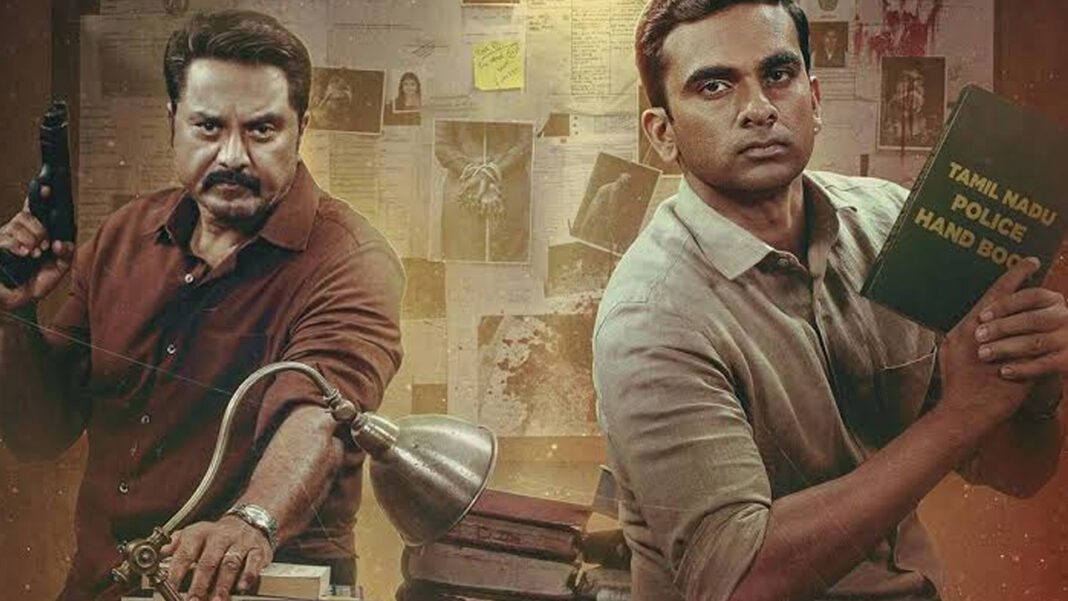Music composer Jakes Bejoy has delivered a great listening experience in the recently released film Por Thozhil, just like his previous works.
In an exclusive chat with The Pioneer, the music composer speaks of composing for this investigative thriller, the big step forward for Por Thozhil, and more.
SHIKHA DUGGAL
Jakes Bejoy’s potent distillations of musical tradition, minimalism, and the spoken
word delivered a listening experience in Por Thozhil that intentionally leveled
the field between composer and audience; promoting an open and easy musical
conversation without sacrificing emotional resonance in exchange.
His work with luminaries like The Walt Disney company or the film Queen, along with the undoubtedly countless mixtapes that have featured tracks from any one of his albums, has brought about a slow burn on the collective consciousness.
In an exclusive conversation with the composer, his inclusive and demanding approach to composition has not only given rise to an almost telepathic exchange between himself and us, but more importantly, it has invited a wider range of musicians into the once cloistered halls of contemporary composition.
Howbeit, when we purely spoke about the investigative thriller, he stuns us, “For me Tamil and Malayalam cinema is almost the same—half of my life I have spent is in Tamil Nadu. So those are the sensibilities that I inculcate in my compositions whenever I am composing a music album for a Tamil movie.
Specifically speaking about this movie, because it’s a thriller, the scenes were so intense; the storytelling was very clean; so I gave a tranquil kind of a composition. I didn’t want to break the continuity of the film at any given point of time! An unexpected range of tone always irks the audiences. And I wanted to be very preemptive.”
So, what was the big step forward for Por Thozhil, we asked, and he said, “I was given a task of creating a theme for the cops who were investigating with the help of music. The antagonist background score was extremely different from what one can imagine!
Just in the beginning of the shoot, because the director is my friend and we go back a long way — so he told me that he wants a facile kind of composition for his film. He wasn’t expecting any song in the movie but I still added one in the climax to underline the socially-driven message he created!”
Elaborating on the special pleasures of working on different compositions for various industries, he recalls, “In my entire span of musical career I’ve never worked for the musicians, no matter how bigger the name is. I only coordinate with the director of the film! So doing a film like this I had no pressure on me in comparison with when I do a commercial film.
And if our songs do not do well then it affects our next release also! And there is a thing about directors that they do not disturb a composer too much in comparison with others. And when I am composing an album for a commercial movie, there’s always the pressure of making all the songs a chartbuster hit! It really affects our reputation in the industry.”
A revelation by the renowned composer, when he opines, “In the Northern belt, the cine-goers do not appreciate the composer’s work at all. I have never even seen the name of a very big composer on their posters, even if it’s a Pritam Chakraborty.
The actors and the director take away all the precedence! The viewers must be used to the insta culture but it takes a lot amount of to compose at track for the film that they eventually they make reels on. And when you come to the south, the music directors are equally big stars.”
Taking reference from the same, we dig in deep with the hit film scorer, and he sparks, “I have never marketed my songs. Maybe a movie like Pathaan wouldn’t need that publicity because it already has Shah Rukh Khan in it, but what about small budget movies? For example, an Ayushmann Khurrana movie, only his hard-core fans cannot make the movie a hit. He needs good chartbusters in his movie too.
There could be another example, when Baazigar released I only went and watched the film for the songs. The title song was a rage back then! Sometimes the publicity does not work but the melodious tunes do.”
Corroborating what he mentioned earlier to us with anecdotes, he spills the beans, “Why is there the name of a co-producer in the posters sometimes, it can be replaced by the music director or a cinematographer who are way more important for the film. I am very sentimental when it comes to this!
But in our south region every technician is also given the due-credit, random person will always know who was given the background score for the film. Everything has changed from the time R D Burman and Anu Malik have been replaced. Nowadays I can see the celebration for an AR Rahman song is also decreased.”
Characterising his compositional routine, he speaks further, “I always investigate about the mood of the film first. If you confidently come up with an album like Padmavat’s — nobody will call it a failure even if it’s a classical rendition and gen z is watching it.
Aashiqui 2 broke records! The Hollywood musical la la land had in numberable songs and it’s still worked! But don’t fool around with songs. The pressure of being in the creative field is very tough to handle for us. Now if MM Keeravani has won an Oscar, he is not going to understand from that he is in a comfortable zone instead I am sure he is working for something even more bigger than achieving an Oscar now.”




